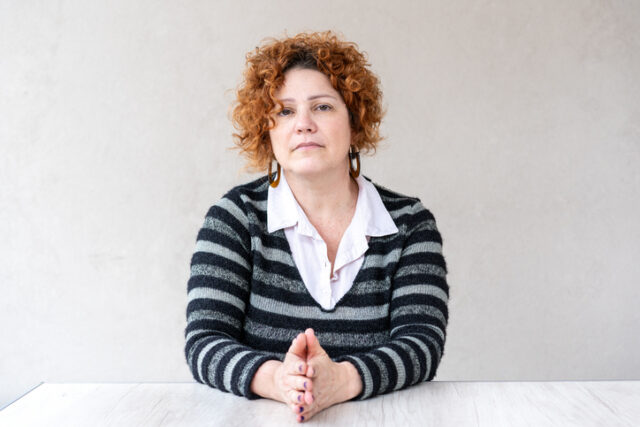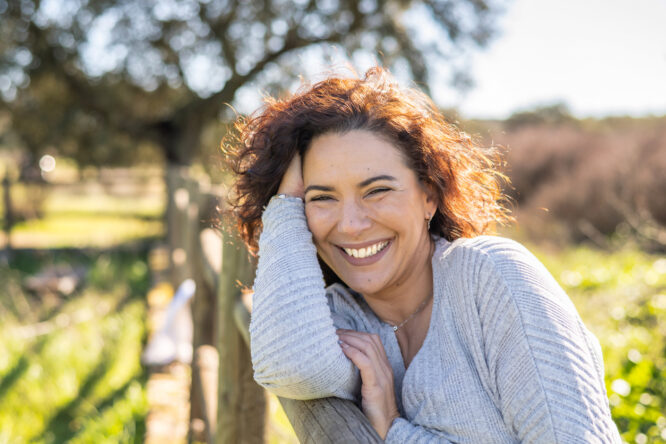Emotional intelligence is one of the most obvious traits you can have, but it’s not always easy to identify.

The truth is that some of the most emotionally aware people are the quiet ones—the ones who pick up on tension in a room, who know when to let something go, or who can stay calm even when things are spiralling. If you’ve ever been told you’re “too quiet” or “too sensitive,” it might actually mean you’re paying closer attention than most. Here are some low-key signs you’re emotionally smarter than people realise.
You notice when someone’s energy changes before they say a word.

You’re the type who can tell when something’s off, even if the other person insists they’re fine. A slightly different tone, a delayed reply, or even a change in posture registers with you quickly. That’s not because you’re guilty of overthinking—it’s because you’re tuned in. You read the little cues people don’t even realise they’re giving off, and that awareness lets you respond with empathy before things even escalate.
You choose your words carefully, especially when emotions are high.

In tense moments, you don’t just blurt out the first thing that comes to mind. You slow down, think about how your words might land, and aim for clarity instead of heat. The ability to stop and take a deep breath before reacting is a huge sign of emotional maturity. It shows you’re not driven purely by impulse—you care about outcomes, not just reactions.
You can hold space for other people’s emotions without trying to fix them.

You know how to sit with someone when they’re hurting without rushing in with advice or solutions. You’re not uncomfortable with silence or tears. You understand that just being there can mean more than words. It takes serious emotional insight to resist the urge to fix and instead just witness someone else’s pain. You know that’s often what people need most.
You recognise when someone’s lashing out from pain, not because of you.

Instead of taking everything personally, you’ve learned to look deeper. You can tell when someone’s anger is really fear, or when a snappy comment is coming from stress, not dislike. Having the ability to separate your worth from someone else’s behaviour keeps you grounded. You don’t carry emotions that don’t belong to you.
You apologise when you’re wrong—without getting defensive.

Owning your mistakes doesn’t feel like weakness to you. You can admit when you’ve hurt someone, even unintentionally because your goal isn’t to be right—it’s to stay connected. That level of self-awareness is rare. Most people struggle to separate shame from accountability, but you’ve figured out how to take responsibility without losing your sense of self.
You give people space when they need it, even if you want to help.

When someone needs time to think or feel something through, you don’t smother them. Even though it’s hard, you understand that emotional processing can’t always happen on your timeline. This shows you respect people’s boundaries and don’t make their feelings about you. It’s a quiet, powerful kind of emotional intelligence.
You ask questions instead of making assumptions.

If something feels off, you don’t jump to conclusions, you ask. Whether it’s “Did I say something that upset you?” or “Is everything okay?” you approach uncertainty with curiosity, not accusation. This creates space for honest connection instead of defensiveness. You’re not trying to control the story; you’re trying to understand it.
You’re aware of how your presence affects a room.

Whether you’re calming things down, lightening the mood, or simply choosing to stay quiet, you pay attention to your own energy. You know that your vibe matters just as much as your words. That kind of self-regulation means you’re able to adjust without losing yourself. It’s a skill that’s easy to miss but powerful in practice.
You don’t overshare just to fill silence.
 Source: Unsplash
Source: Unsplash You’re comfortable with emotional depth, but you’re not out here telling your life story to anyone who’ll listen. You understand that vulnerability is earned, not performed. This boundary shows you know the difference between connection and catharsis. You open up selectively because you value trust over attention.
You’re good at knowing when to let something go.
 Source: Unsplash
Source: Unsplash You don’t drag out arguments just to win. If something can be dropped without bitterness, you drop it. You’ve learned that some things really aren’t worth the extra emotional energy. Rather than avoidance, this is discernment. You’ve figured out when it’s better to preserve peace than prove a point.
You treat your own emotions with compassion, not shame.
 Source: Unsplash
Source: Unsplash You’ve stopped beating yourself up for crying, needing space, or feeling too much. You understand that emotions aren’t weakness—they’re signals. They tell you what matters, what hurts, what needs attention. That self-kindness changes everything. It helps you move through difficult feelings instead of getting stuck in them.
You’re not easily manipulated by guilt or praise.
 Source: Unsplash
Source: Unsplash Because you know your own values, you don’t bend just because someone is laying it on thick, whether it’s flattery or guilt-tripping. You can see when something feels off, even if it’s dressed up nicely. That kind of insight keeps your boundaries intact. You’re emotionally independent, and it shows.
You can feel deeply without getting overwhelmed by everything.

You’ve built emotional resilience without hardening yourself. You let things in, but you also know how to process and release instead of carrying it all indefinitely. That balance of empathy and strength is rare. It means you can be open-hearted without being crushed by every feeling that comes your way.
You don’t hold grudges, but you do learn from them.

You don’t see the point in staying bitter. Once something’s done, you let go, but you remember how it made you feel. You use those memories to make better decisions going forward. This is emotional intelligence in action: forgiving without forgetting the lesson. It helps you stay open while still protecting yourself.
People often say they feel calm or understood around you.

You might not realise it, but this is one of the strongest signs of emotional intelligence. You create emotional safety without trying—it’s just how you move through the world. If people come to you when they need to talk, or tell you they feel better after spending time with you, that’s not random. It means you’re emotionally smart in ways that matter more than most people realise.



